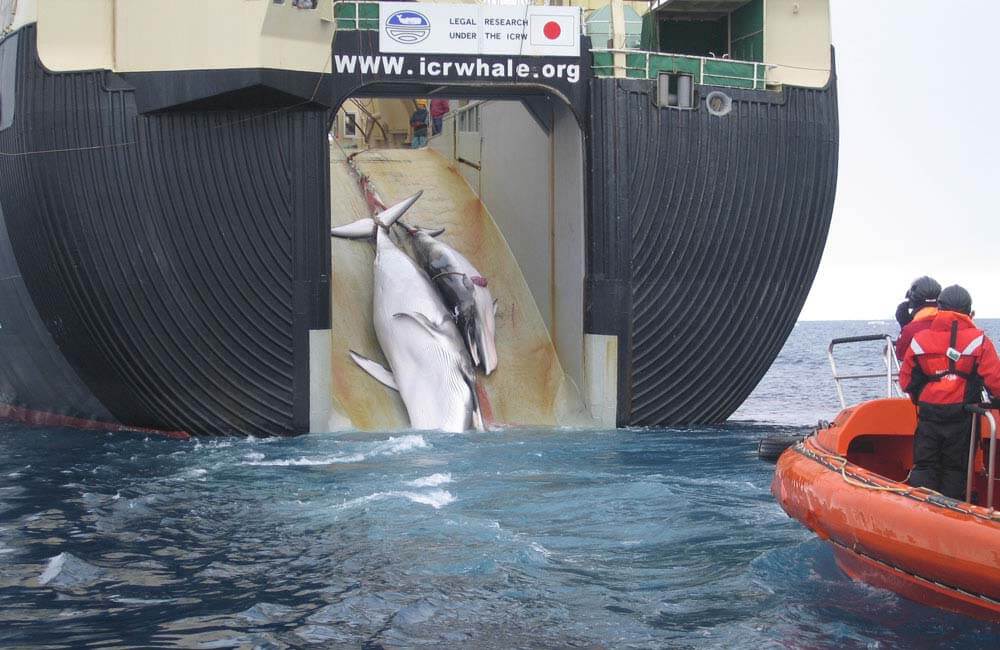
The Japanese Government has announced that it plans to withdraw from the International Whaling Commission (IWC) in order to resume commercial whaling.
The decision comes following repeated attempts by the Japanese government to persuade the IWC that the population of northern minke whales found around the Japanese coast, was sufficient to allow the resumption of commercial whale hunting. The IWC’s 1986 moratorium on commercial whale hunting called a halt to much of the industry, however, Japan was granted an exemption allowing it to hunt whales in the name of ‘scientific research’. The meat from the whales is then sold for food on the open market.
Japan’s whaling activities have been heavily criticised over the years, with a 2018 report to the IWC stating that of 333 minke whales caught during the annual hunting season, 122 were pregnant females. Japan has insisted that whale meat is of important cultural and historical significance. This is not without foundation, but harks back to an era before industrialisation, when whales and other cetaceans were hunted as a source of food. The same defence is used to justify the annual slaughter of dolphins at Taiji. Japan moved whaling operations to Antarctic waters in the aftermath of the Second World War as a source of food for the nation, but hunting has continued there long after the nation’s recovery.
Speaking about the government’s negotiations with the IWC to allow Japan to resume commercial whaling operations, Cabinet Secretary Yoshihide Suga said: ‘Regrettably, we have reached a decision that it is impossible in the IWC to seek the coexistence of states with different views. The withdrawal will take effect at the end of June, with commercial whaling to resume in July.’

Suga also said that the resumption of commercial whaling would ‘be in line with Japan’s basic policy of promoting sustainable use of aquatic living resources based on scientific evidence,’ adding that operations ‘will be limited to Japan’s territorial waters and exclusive economic zones. We will not hunt in the Antarctic waters or in the southern hemisphere.’ Mr Suga also said that the hunt would ‘respect catch limits based on IWC calculations’ in order to ‘avoid negative impact on cetacean resources.’
Japan had argued at the September, 2018 IWC summit in Brazil that it should be allowed to return to commercial whale hunting if it committed to sustainable practices and agreed-upon quotas. The northern minke whale, which would be the primary target of whaling operations is not thought to be endangered and is currently listed as being ‘of least concern’ by the IUCN. Nevertheless, other species, such as the blue whale, were hunted to the brink of extinction, and some conservationists argue that Japan’s withdrawal from the IWC could set a dangerous precedent.
Needless to say, the decision has been widely criticised by campaigners around the world. In a statement on Greenpeace Japan’s website, executive director Sam Annesley said: ‘The declaration today is out of step with the international community, let alone the protection needed to safeguard the future of our oceans and these majestic creatures. The government of Japan must urgently act to conserve marine ecosystems, rather than resume commercial whaling.’


